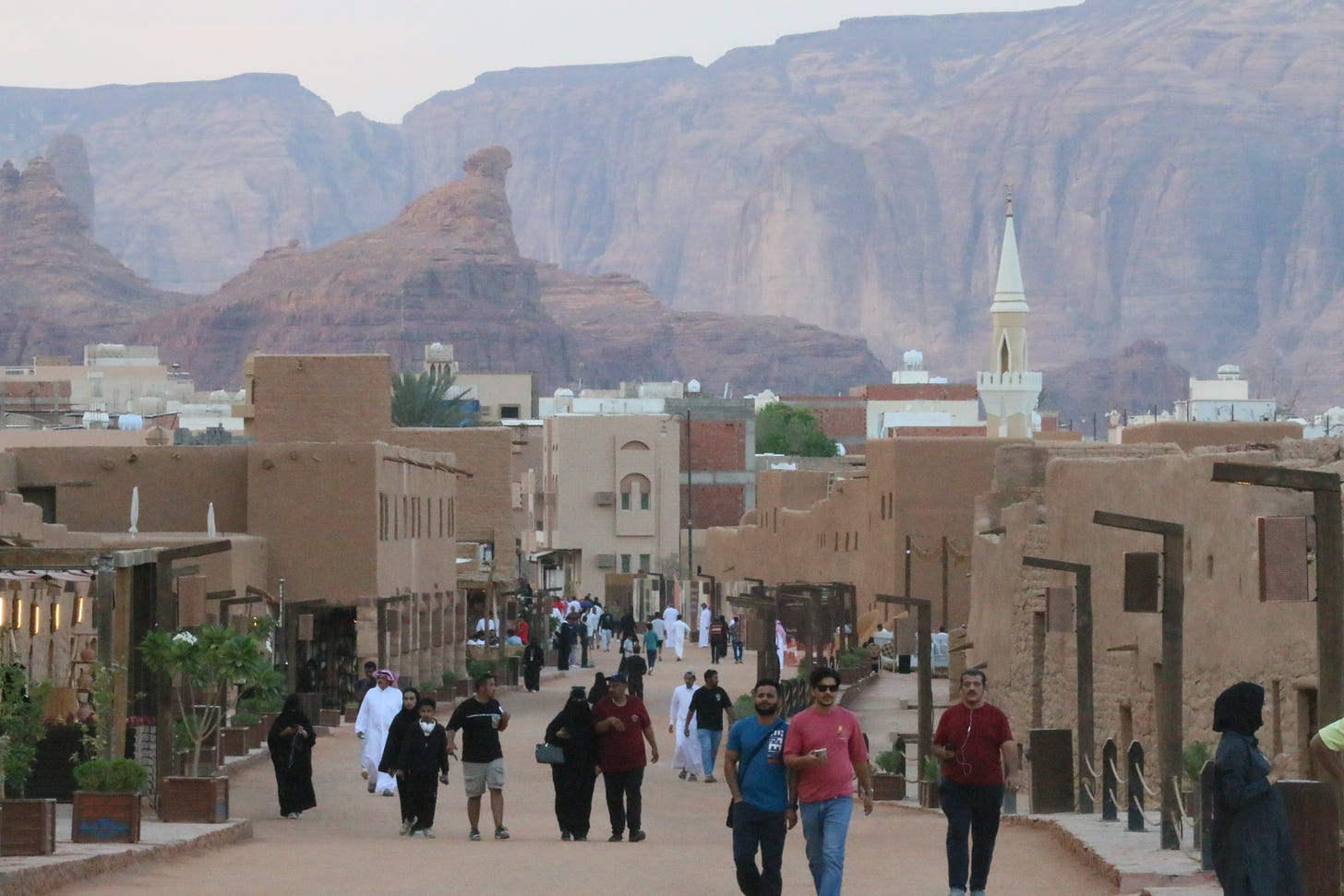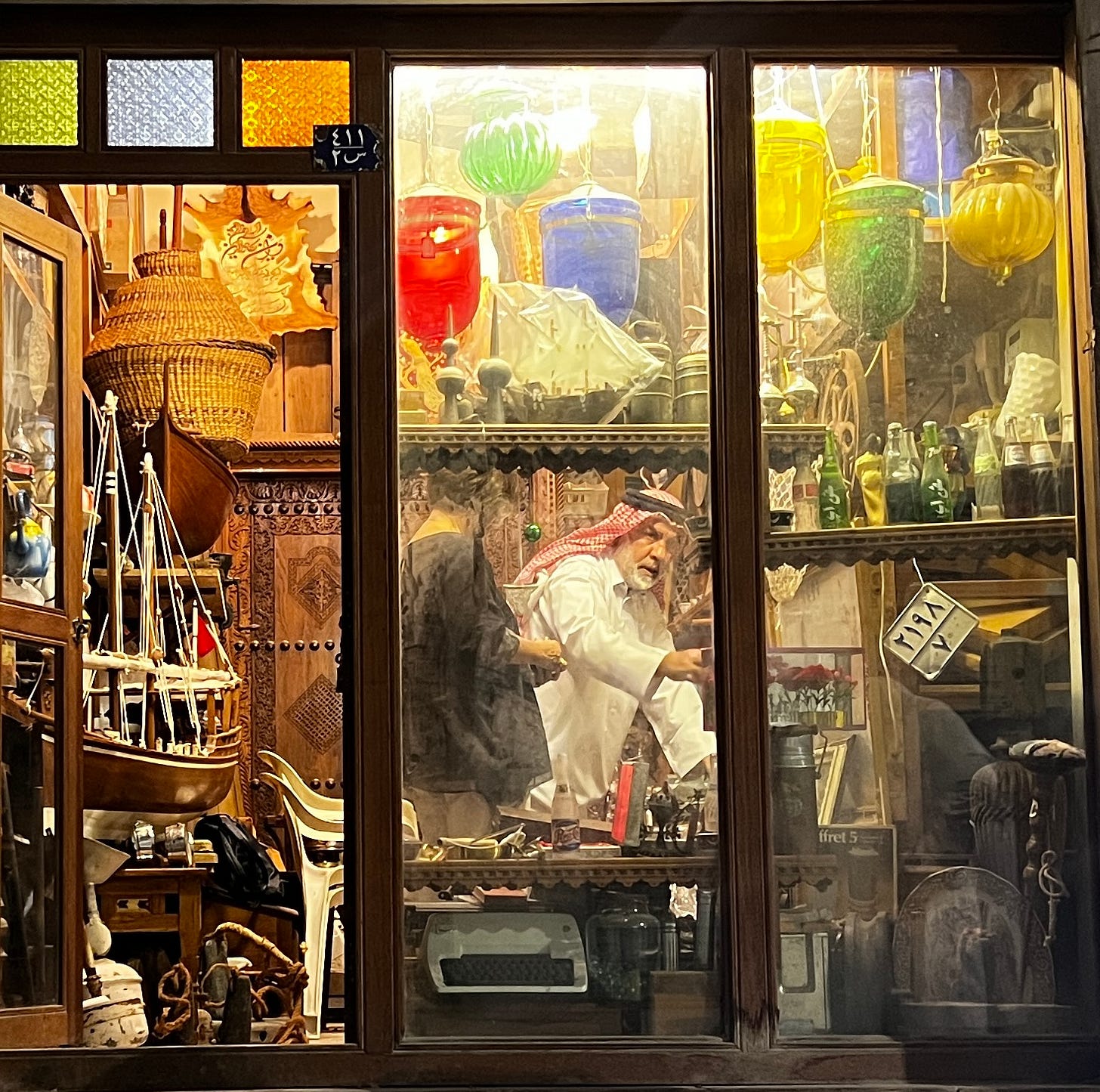Saudi Arabia’s plight in a warming world may not garner much sympathy, given its massive oil exports are no small part of the problem. But as everywhere, Saudi and its fellow Gulf states are wrangling with harsh fallout from climate change.
It’s going to get worse, and this matters for us all.
I visited Saudi Arabia and Bahrain late last year. It was just before COP28 was held in Dubai, the go-go business capital of another Gulf state, the United Arab Emirates, or UAE. I was also wrapping up 15 years living in and out of Abu Dhabi, the UAE capital.
It was a good time to reflect on global warming and the energy transition in the Gulf, which also includes Qatar, Oman and Kuwait. On the opposite, eastern shore is Iran.
Before oil and gas were discovered, the people of the Arab countries on the western side of the Gulf survived amid one of the harshest climates on the planet. They face a precarious future once again.
The Kingdom is already experiencing a 1.5-degree warmer climate as the Gulf region warms faster than much of the rest of the world. Summer temperatures are now routinely rising well past survivability without air conditioning. Rising seas threaten delicate coastlines and cities just inches above sea level, and warming waters are taking a massive toll on coral reefs. Longer-than-usual droughts are forcing more water desalination — an extremely energy intensive process that warms the waters of the Gulf further — while super-intense bursts of rain, when rain does come, create more damage than relief.
That’s just a little taste of the Climate Futures Report, subtitled, “Saudi Arabia in a 3-Degrees Warmer World,” released for COP28.
“Climate change, coupled with anthropogenic influences, is already driving the loss of natural habitats, including unique ecosystems such as sab-khas, karst systems, oases, and wadis, which are highly dependent on above- and below-ground water resources,” reads a seminal study recently conducted in Saudi Arabia by The King Abdullah University of Science and Technology (KAUST) and think tank the King Abdullah Petroleum Studies and Research Center (KAPSARC).
It goes on: ”The loss of these ecosystems is affecting unique native species, as well as migratory birds that rely on them as a waypoint for breeding, resting, and feeding grounds during their migratory routes.”
The institutions behind this 136-page report are all Saudi and pull few punches.
Among its most alarming observations is that the impacts of climate change could undermine the very economic changes the Kingdom is relying on to replace oil and gas. These include tourism — including eco-tourism and the Haj pilgrimage — as well as industrial activity such as a new electric car assembly plant and critical minerals mining and clean energy production.
I delved into this, and the Gulf’s relationship with fossil fuels in this piece for Cipher.
The appeal of Saudi Arabia as a place to visit and live — and if you think such appeals are far-fetched, remember booming Dubai was little more than a sand-swept town a half-century ago — depends significantly on flourishing coral reefs and lush oases. Pilgrimage travelers won’t come if the Haj is plagued by disease. Clean energy industries such as hydrogen and lithium mining require water.
Climate change threatens all of this.
And this is where the rest of the world should care most about how climate change treats the Gulf. It’s tempting to point to the Gulf countries — responsible for about one-quarter of the world’s oil exports, sporting some the highest per person emissions on the planet — and blame them for their own problem. Fair enough, as long as one remembers to also blame the world’s largest oil and gas producer and all-time leading greenhouse gas emitter the United States.
But to the extent these countries can’t find new fonts of economic growth and create new ways to participate in global commerce, they’ll keep relying on fossil fuels, seeking new markets overseas and prolonging their use at home for everything from generating electricity to fueling their growing fleets of cars and trucks.
That won’t help anyone. So we should be as concerned about climate change in the Gulf as much as anyplace, for our own sake as well as theirs.









So glad you’re enjoying them, Susan. Thanks for making the effort to let me know! Best, Bill
Your photos are gorgeous! And thought provoking.